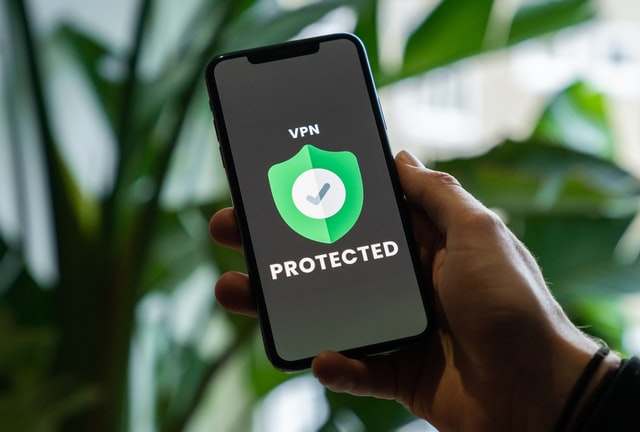
The world’s most misunderstood technology is the virtual private network or VPN.
There are two camps. People who love VPNs and believe they are the one-click solution to internet privacy security. And those who think they are a scam, and there’s no reason at all to install one. As it often is, the truth is somewhere in the middle.
This is confusion is a result of shameless shilling from VPN providers. They exaggerate their benefits and promote them as a one-button solution to online privacy and security.
There are several advantages to utilizing a virtual private network, but there are things they do and things they don’t. If you’d like to know exactly how a VPN helps and how it doesn’t you’re in the right place. Let’s cover 4 facts everyone gets wrong about VPNs.
1) In 70% – 85% Of Cases VPN Encryption Is Redundant
The internet is already encrypted. It’s not 2006 anymore. There was a time when All communication online used the HTTP protocol. In this age of trust, all your passwords, usernames, photos you uploaded, credit card details literally all your online communication was 100% clear text. If it was intercepted, anyone could read it. At the time, the world was less technologically competent, and we didn’t use the internet for online purchases and put our lives online.
In time, the average technical literacy increased, and we started to handle some serious adult stuff online like online banking. The internet evolved and adopted the HTTPS protocol. The S stands for secure. Rather than bore you with the technicalities all you need to know is that HTTPS is encrypted, on your PC and 80 – 90% of sites on the internet already use this type of encryption.
VPN providers commonly say that their service will protect you on public WiFi networks, but with HTTPS even if a hacker made a fake access point, they wouldn’t be able to read anything.
A VPN can still protect you on public WiFi.
Ever seen this error? Your connection is not private. This means that a site you’re connecting to is using the old HTTP encryption method. Ironically, if you Google how to fix this error, the top results recommend that you click “advance” and tell the browser to proceed. If you do this, all communication is visible. Fake Wifi points and hackers count on this very human behavior. If you did this and then logged in, your password is visible to anyone intercepting that traffic.
A VPN is an additional layer of encryption. Even over HTTP, your data is protected. Any hacker that intercepts your communication can only look at the locked envelope addresses to the VPN server.
2) Your ISP Has No Idea You’re Using A VPN
There are some obfuscated VPNs used in China, but normally an ISP knows that you’re using a VPN.
Don’t worry. That’s the only thing they know. VPN traffic looks different and it’s fairly obvious when all your traffic is sent to the single IP address of a remote server.
There are several known IP addresses belonging to VPN businesses on lists, the handshake process varies depending on whether you’re using HTTPS or a VPN, and the packet is most likely bigger. There are other ways to determine that you’re using a VPN we won’t go into here.
Yes, your ISP may determine that you’re using a VPN, but it’s doubtful they’ll care enough to investigate. And if they did, there’s nothing they could learn.
3) VPNs Are Mainly Used To Watch Geo-Blocked Content
Not security or privacy, most people use VPNs to watch Netflix, Hulu, and other blocked content.
Around the world, all kinds of sites and services are blocked. In Pakistan, telegram is blocked. In Vietnam, you can’t access Medium. In China, most of the internet is blocked. Russia just blocked Facebook and Instagram, and hundreds of online services have ceased operations for Russians. VPNs are the main way people get around this.
Amazon Prime, HBO, SkySports, crypto exchanges, and so many other services aren’t available to everyone around the world.
Some streaming services are held back by archaic broadcasting rules leftover from the era of the living room television. Some crypto exchanges are banned because of local regulations. In the US, dozens of exchanges offering derivative products are banned.
In our fiber optic-powered entertainment reality, this makes no sense. You can continue to wait for outdated regulations, and for governments to liberalize access to content and services, or you can simply get a VPN and upgrade your internet connection with the press of a button.
4) VPNs Are Only Important In China And Russia
Why would I need a VPN? I live in the US of A, and all my online privacy is guaranteed. Actually no. During the Trump administration, a new law was passed that allowed your ISP (the company that sells you internet) to collect and sell your browsing data to advertisers. This effectively ended net neutrality and now companies can decide whether or not you can access certain sites, build profiles on you, and more. Furthermore, strict SEC regulations prohibit US citizens from accessing futures and options in crypto exchanges with leverage. That might not affect you, but it’s worth knowing that even the freedom-loving western countries are suffering from more and more government intrusion and regulation into what we do online.
In Summary
The claims from providers that VPNs are the one-click solutions for cybersecurity are exaggerated. The internet is already encrypted. VPNs are mainly for hiding what you do online from your ISP and unblocking sites. If you are interested in learning more about what a VPN is and what a VPN isn’t click the link.
